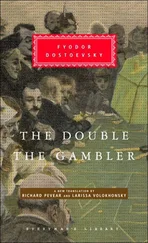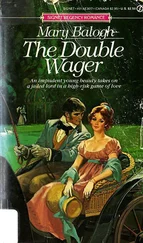“And you thought Bobbie was talking about himself…”
She nodded. “I did at the time. But now I learn that his son may have been a criminal. Maybe that’s what Bobbie was thinking about. It wasn’t Bobbie who had ever been behind bars. Maybe it was his son who had once gone to jail.”
“Or, maybe,” Laurel said, thinking aloud, “his son is there now.”
THAT AFTERNOON, SERENA told Laurel that she, too, had never heard Bobbie Crocker mention a son. She said she could barely imagine such a thing. Now she was gazing at the photographs Laurel had made from the negatives Bobbie Crocker had left behind at the Hotel New England, as well as at the handful of fading, dog-eared prints he had carried with him for years. The waitress was working in Burlington that day, and so she and Laurel were meeting in a booth in the back of the diner, a slightly incongruous world of train-car-slick chromes and panels of dark heavy wood, Bobbie’s pictures carefully stacked in a black portfolio case that-when open-took up virtually the entire top of the table. The restaurant was half filled, but the real rush was over, and so the waitress who was working with Serena that day, a matronly middle-aged woman named Beverly, had insisted that her younger associate join Laurel in the booth.
“And you want me to hang on to these,” Serena said, her voice hovering on an edge between incredulity and mere bewilderment. She looked older to Laurel in her beige uniform. The dress was too tight across her breasts, and she had pulled her rich mane of hair back in a styleless bun.
“I do. There are still negatives I haven’t finished working with, and so I’m hanging onto those. For the moment, anyway. But as I print those pictures I’ll bring them to you, too.”
“I like this one,” she said, stalling for time as she processed Laurel ’s request. She was staring at the image of the Mustang in front of Bobbie’s childhood home. “I know a person up in Stowe who collects vintage cars. He has a Mustang just like that one: White with the black hardtop. Very classic.”
“Bobbie was a talented guy.”
She nodded and then looked up at Laurel gravely, her face a vessel bracing for bad weather. “Okay, why?”
“Why what?”
“Why do you want me to keep these for you?”
Laurel took a sip of her soda. She had expected this question, but in a diner in the light of day-away from the darkroom and people like T. J. Leckbruge-she feared that whatever she said might sound a trifle insane. Maybe more than a trifle. But she knew this wasn’t the case. It wasn’t as if she had made up Leckbruge or Pamela Buchanan Marshfield. It wasn’t as if she had manufactured the connections between Bobbie Crocker and a house in East Egg, Long Island. She had the pictures to prove the connection was real, and they were right there between them on the Formica-topped table.
“Well, his sister wants them,” she answered. “That woman I told you about on Friday. I met with her lawyer yesterday, and I came away with a very bad feeling.”
“Meaning?”
“I don’t think they’re safe with me.”
Serena leaned forward across the tabletop. “What are you really saying, Laurel? Do you honestly believe Bobbie’s sister or this lawyer is going to send some goon to break your legs for a couple of ancient black and whites of dudes playing chess? Do you really believe someone wants a picture of a Mustang that badly?”
Laurel considered tapping the side of the portfolio case and correcting her: This was far more than a couple of images. But that wasn’t Serena’s point. “I don’t think anyone would hurt me,” she said evenly. “I wouldn’t ask you to hang on to them for me if I thought someone would hurt you or your aunt. But, yes, I do think it’s possible they might have someone try to steal them-or resort to more aggressive legal tactics.”
“Which would be?”
“I’m not sure.”
“So my having the pictures would be a secret? No one would know?”
“No one but us.”
Serena sat back in the booth and rested her hands in her lap. “You know, if I didn’t know you and what you did for a living, I might have thought you were the one who had just stumbled in off the streets-or come here from the state hospital.”
“Look, I know I seem a little irrational. But I’m not. And until I know why Bobbie Crocker changed his name or why his sister wants these pictures so badly, I need your help. Okay?”
“Of course it’s okay. Of course I’ll help you. But, Laurel, doesn’t this all seem a little, I don’t know, beyond irrational? A little…”
“A little what?”
She smiled sheepishly. “I’m just worried about you. That’s all.”
“Why does it seem that strange and absurd? Good Lord, Serena, you were homeless. I would have thought you would have understood as well as anyone just how strange and absurd life can get!” She was aware that her tone sounded defensive and sharp and just a little bit whiny.
“I was only saying-”
“I know what you were saying. You and David and my boss and my roommate are all treating me like I’m insane. Like this is all something I’ve completely made up!” She hadn’t planned on raising her voice, but she had, and she could see that the other customers were now watching them.
“I didn’t say you’d made anything up,” Serena murmured.
The waitress was trying to pacify her, and this only made Laurel ’s frustration more pronounced. But she didn’t want to get Serena in trouble by making a scene in the woman’s restaurant, and so she tried to make light of her outburst. “I didn’t sleep well last night,” she said, making a conscious effort to keep her voice friendly and calm while acknowledging that in Serena’s eyes (though most certainly not in her own) she had overreacted.
“I understand,” Serena said, and then she looked past Laurel, over her shoulder. Laurel turned and saw arriving at her side a short, older man with milky blue eyes. He was wearing a red V-neck sweater with a white polo shirt with an unfashionably large, pointed collar beneath it. The collar looked like the wings on a paper airplane. Although he had little hair left on his scalp, he had dwarf topiaries emerging from his nostrils and his ears. Laurel knew she had seen him somewhere before, but she wasn’t sure where. Almost instantly he ended the mystery.
“So, I saw you at church just now, talking to my friend Jordie,” he said. “Ain’t she a peach?”
“She is a peach,” Laurel said, glancing quickly at Serena and then starting to rise to be polite.
“Don’t get up. Not for an old wolf like me. Are these Reese’s or Bobbie’s?” he asked, sweeping his hand over the portfolio case as if he had a magic wand in his fingers.
“They’re Bobbie’s,” she answered. “I’m sorry. I must have missed your name.”
“Hey, I’m the one who should be sorry. It’s Shem. Short for Sherman. My name is Shem Wolfe. I go to the church you were just at. It’s a nice church. I used to like a place closer to Burlington. But now I go to Bartlett Congregational. I don’t mind the drive. What are your names?”
The two young women introduced themselves. Then, one at a time, he surrounded their fingers and palms with his own oddly meaty, age-spot-ridden hands. “So tell me, how is Bobbie doing? Where is he these days?”
Laurel wondered if the news that Bobbie had died would be a blow, because it was possible that he and Bobbie had been friends. But Shem was old and Bobbie had been even older, and so she simply forged ahead and told him. “He died. But he died quickly-a stroke-and so he didn’t suffer. He was living in Burlington. Only five or six blocks from here, actually.”
He nodded, absorbing the news. “Oh, that’s too bad. I’m sorry. When did he pass?”
Читать дальше












